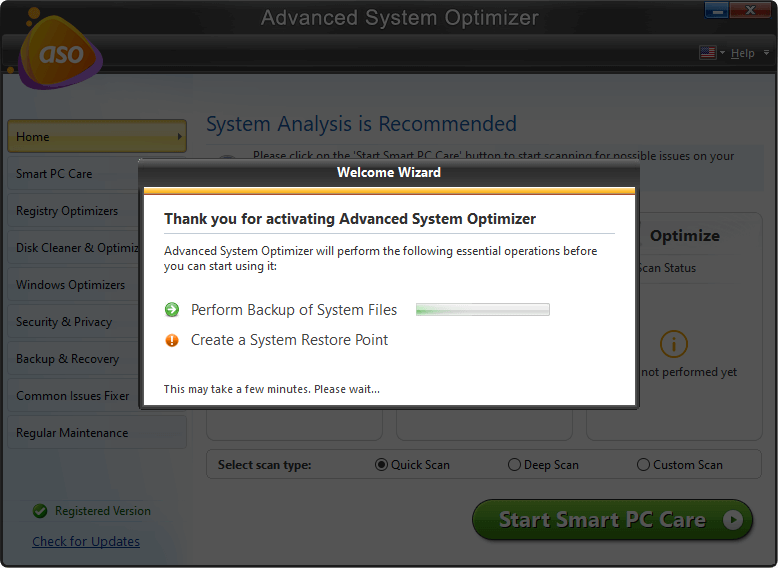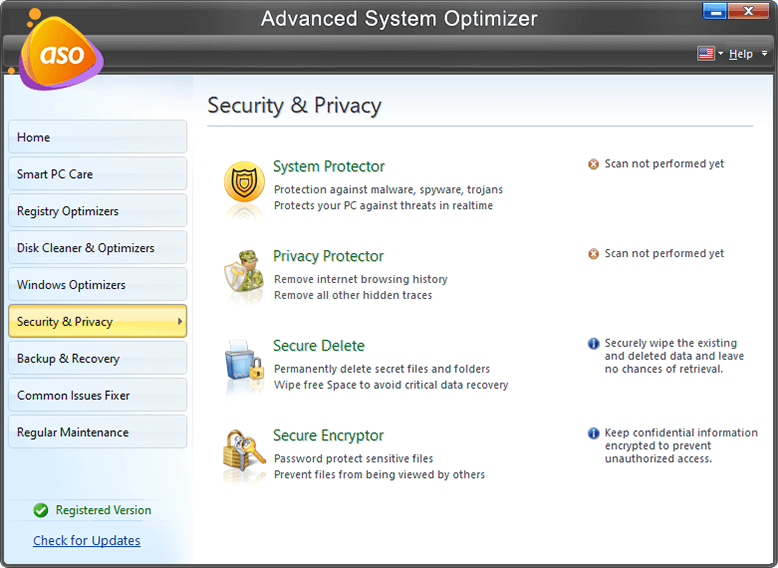“Windows 10 Taking A Long Time To Load” is probably one of the most frustrating issues. When your system takes forever to boot, you just dread turning on or rebooting your computer. Certain PCs are especially prone to this kind of problem. Well, you are not alone!
Several Windows 10 users have lately reported slow booting issues after recent updates, but thankfully the problem is 100% solvable. We’ll discuss the five amazing tips and tricks to fix the ‘Windows 10 Slow Startup Issue’.
How To Get Rid Of Long Boot Times On Windows PCs (2023)
Read on to find out the one that serves you the best!
| Workable Solutions | {SOLVED}: Windows 10 Slow Boot Time Issues |
|---|---|
| METHOD 1- Manage Startup Items | If you are a novice computer user & have no idea about disabling or managing unnecessary Startup Programs. Install Advanced System Optimizer > Register with the tool > Regular Maintenance . . . Read More |
| METHOD 2- Disable Fast Startup | Try disabling the Fast Startup feature temporarily to see if it helps you fix the Windows 10 Slow Boot time issues. Press Windows key + S altogether > type Control Panel > hit Enter button . . . Read More |
| METHOD 3- Update Windows 10 To Latest Version | Microsoft keeps on rolling new updates to fix current bugs & improve user experience with new features & functionalities. So, installing the latest update can undoubtedly help you resolve the slow boot problem. . .Read More |
| METHOD 4- Update Graphics Drivers | If your system is running old or faulty drivers, it can cause the PC to boot super slowly. Therefore, it’s best to give your computer a new boost with a new set of compatible drivers. . . Read More. |
| METHOD 5- Carry Out Disk Defragmentation | To improve the read and write speed of your files and eventually the system performance, several users prefer to defrag the drives and fix Windows 10 slow boot problems. . .Read More |
METHOD 1- Manage Startup Items
STEP 1- A lot of programs set itself to run at startup automatically. If your system is doing the same, it is highly recommended to manage those startup items and disable the ones that are not required to launch at the Windows startup time.
STEP 2- To manage all your Startup Programs from one place, install Advanced System Optimizer. The Windows application works amazingly well to fix common computer issues in no time.

STEP 3- Register the version and simply navigate to the Regular Maintenance module < go to the Startup Manager.

STEP 4- From the new Startup Manager window, click on the Manage Startup button.
STEP 5- Once the list of Startup Items appears on the screen, quickly go through it and uncheck the items you do not wish to launch automatically at the time of Windows startup. Click on Remove icon and proceed by pressing the Yes button to confirm the disabling process.
Now that you have less Windows apps & programs to launch on Startup automatically, you’ll eventually get rid of Slow boot time issues on Windows 10.
METHOD 2- Disable Fast Startup
STEP 1- Go to the Search menu and look for the Control Panel. You can press the shortcut (Windows key + S altogether to open the Search menu) & navigate Power Option from the list.

STEP 2- From the next window, you need to click on Choose what the power button does.

STEP 3- Now locate and click “Change settings that are currently unavailable.”

STEP 4- Now carefully turn off the Fast Startup feature if it is toggled on. Hit the Save button!

You can enable the Fast Startup feature the same way, and your Windows 10 long boot time should be reduced by now. If the issue is persisting, check out the next workaround!
METHOD 3- Update Windows 10 To Latest Version
STEP 1- Launch the System Settings and head towards the Update & Security module.

STEP 2- From the next Windows Update window, click on Check for updates button & let the system look for any available new security patches and functionalities by Microsoft.

Once the new Windows update is installed, you should fix the annoying Slow boot time issues. In case you’ve already updated your system to the latest OS and are still witnessing the slow startup issues, try the next workaround!
METHOD 4- Update Graphics Drivers
If you are a novice computer user and have no idea about updating drivers successfully, here’s your step by step guide with multiple methods to update drivers manually & automatically.
Alternatively, you can rely on a professional driver updater utility like Smart Driver Care that offers an automatic way to scan and identify drivers that need immediate attention. The driver updater software ensures that no faulty, outdated, corrupted, missing, or damaged drivers hamper your system performance. You can read the step by step process to update drivers using Smart Driver Care right here!
METHOD 5- Carry Out Disk Defragmentation
To improve your files’ read and write speed and eventually the system performance, several users prefer to defrag the drives and fix Windows 10 slow boot problems. Not sure how to perform defragmentation manually or automatically? You surely need to check out the following guides:
- How To Defrag Windows 10, 8, 7: With And Without Using Defragmentation Software?
- 10 Best Defragmenter Software To Defrag Windows 10 Hard Drive
If everything fails to resolve the Windows 10 Slow Boot Times issue, the last but the most effective resort is Perform A Reset. Reinstalling a fresh copy of Windows 10 will help you enjoy maximum performance and increase your overall productivity. You can follow our step by step guide on how to reset Windows PC? Keep in mind: Backup your entire computer data before implementing this step!



 Subscribe Now & Never Miss The Latest Tech Updates!
Subscribe Now & Never Miss The Latest Tech Updates!
Mridula
Managing startup programs helps and using Advanced System Optimizer will make it easier to manage them.